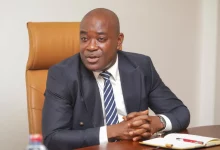Political parties are the foundation block of the democratic state. They exist to organise the population along a political ideology and sponsor candidates during elections to national offices to steer the affairs of the country.
In Ghana, the right to form political a party is guaranteed under Article 55(i) of the 1992 Constitution, which explicitly states that, “The right to form political parties is hereby guaranteed.”
The constitution further states in section 55(3) that “Subject to the provision of this Article, a political party is free to participate in shaping the political will of the people to disseminate information on political ideas, social and economic programmes of a national character, and sponsor candidates for elections to any public office other than to District Assemblies or lower government units.’
Indeed, the return to constitutional democracy in 1993 has seen the formation of political parties in the country which have been contributing to the survival of the state of Ghana by mobilising the population and educating them on their political ideologies and beliefs for successful elections and peaceful transfer of power from one administration to another.
Many political parties have sprung up in the 28 years of our multi-party democratic evolution. Some political parties have not been able to stand the test of time and have faded into political oblivion.
Indisputably, it is only the New Political Party (NPP) and the National Democratic Congress (NDC) which have been able to live up to expectation as vibrant and vigorous political parties commanding massive support across the length and breadth of the country.
Certainly, they are the only political parties which have branches in all regional capitals and districts across the country. They are the only political parties which are able to field candidates in all the constituencies (275) during elections.
Their continual dominance in the political space with power alternating between them since the return of multiparty democracy in 1993 appears to suggest that Ghana is a two-party state.
The political trend in the country has led to the construct that the NPP and the NDC are the major political parties in the country and all other parties are smaller or minor ones.
We agree to the construct that other parties, aside from the NDC and NPP, are smaller parties, because they do not have the resources to undertake mass political mobilisation across the country to remain relevant in the distribution of political power.
Why are they referred to as smaller political parties?
We may attempt to guess the answer by speculating that some of these so-called smaller parties have allowed the major political parties to infiltrate their ranks and subsume some of their membership into their fold.
Political scientists have predicted that political power will continue to alternate between the NDC and NPP for a long time.
Fact still remains that some members of the smaller parties are known to have accepted positions in government, through political bargaining, raising questions over their loyalty to their own political ideology.
Nevertheless, we of the Ghanaian Times are of the firm conviction that smaller parties are a force to reckon with. The major or the bigger political parties rely on them in the event of a second round in elections for a coalition government.
We, therefore, wish to urge the smaller parties to assert themselves and become a ‘third force’ in Ghana’s democratic development.



